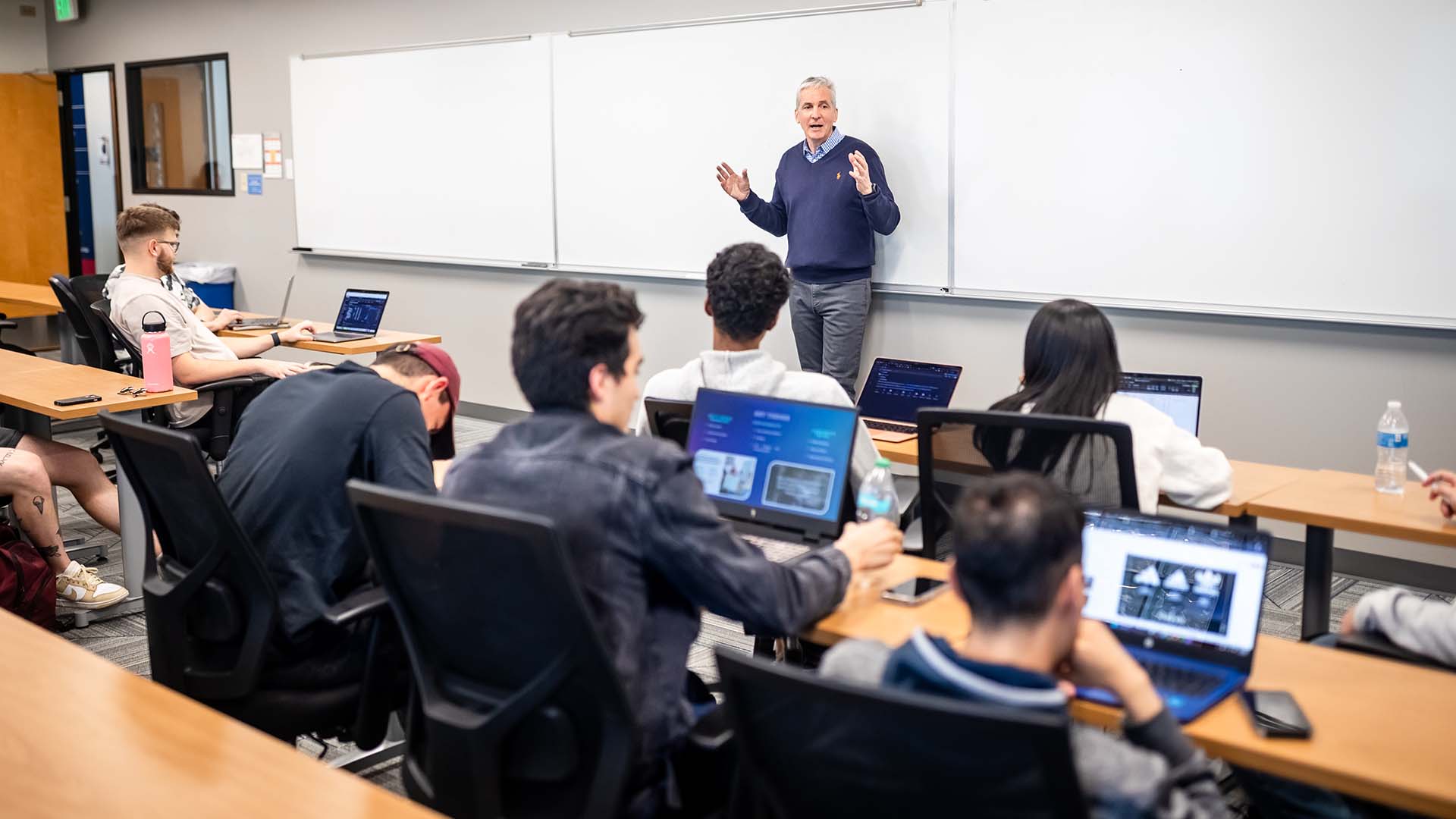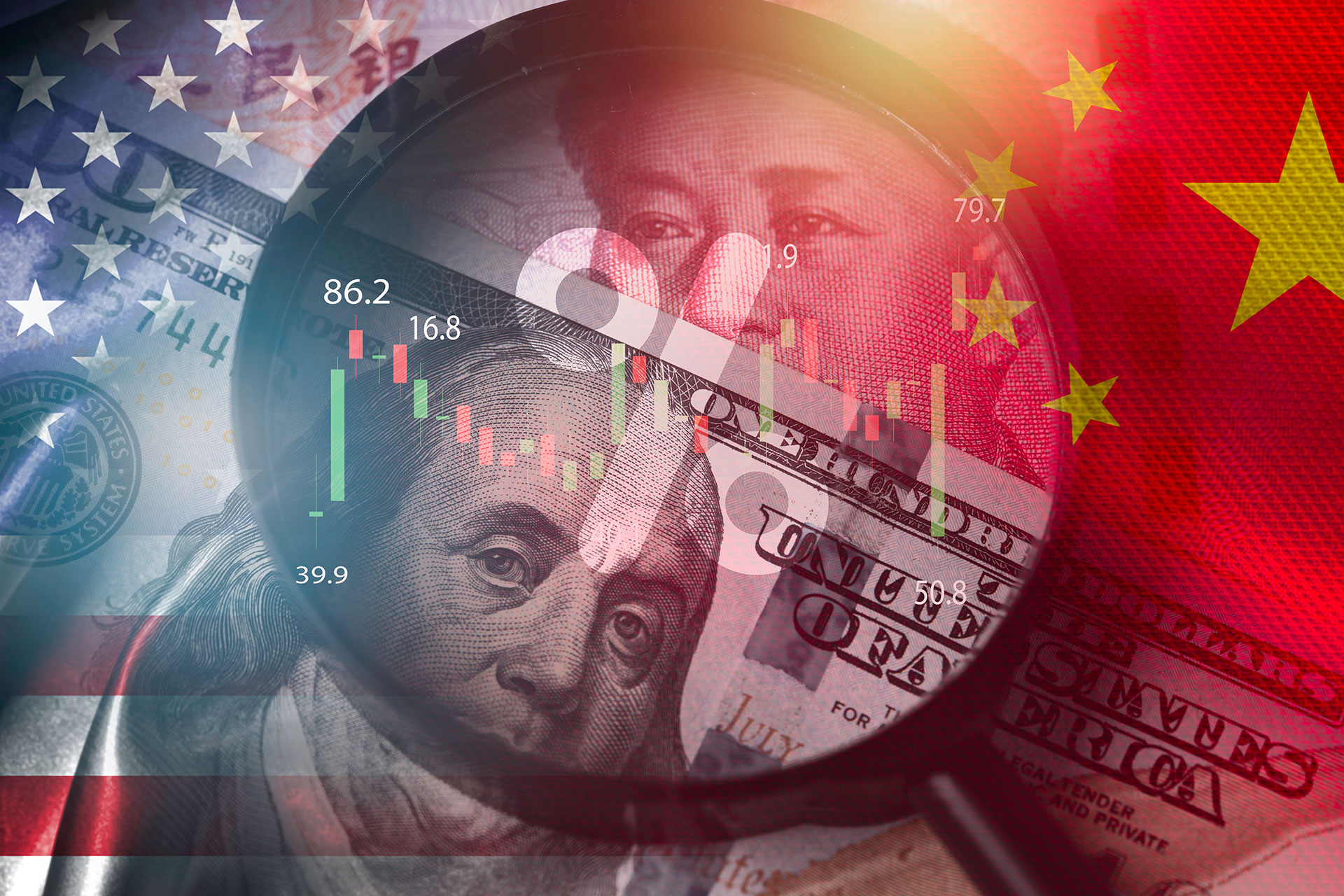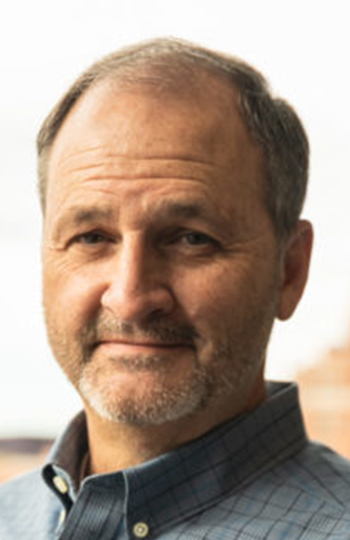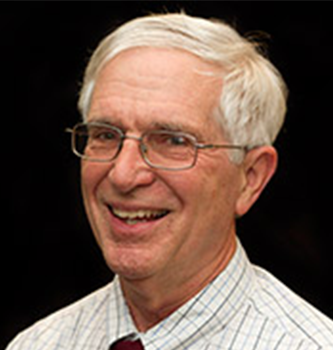Former FDIC leader talks big banks, bubbles and Bitcoin
Thomas Hoenig, Ph.D., visits Auraria Campus in Denver, discusses factors to affect economy in 2018 and beyond.
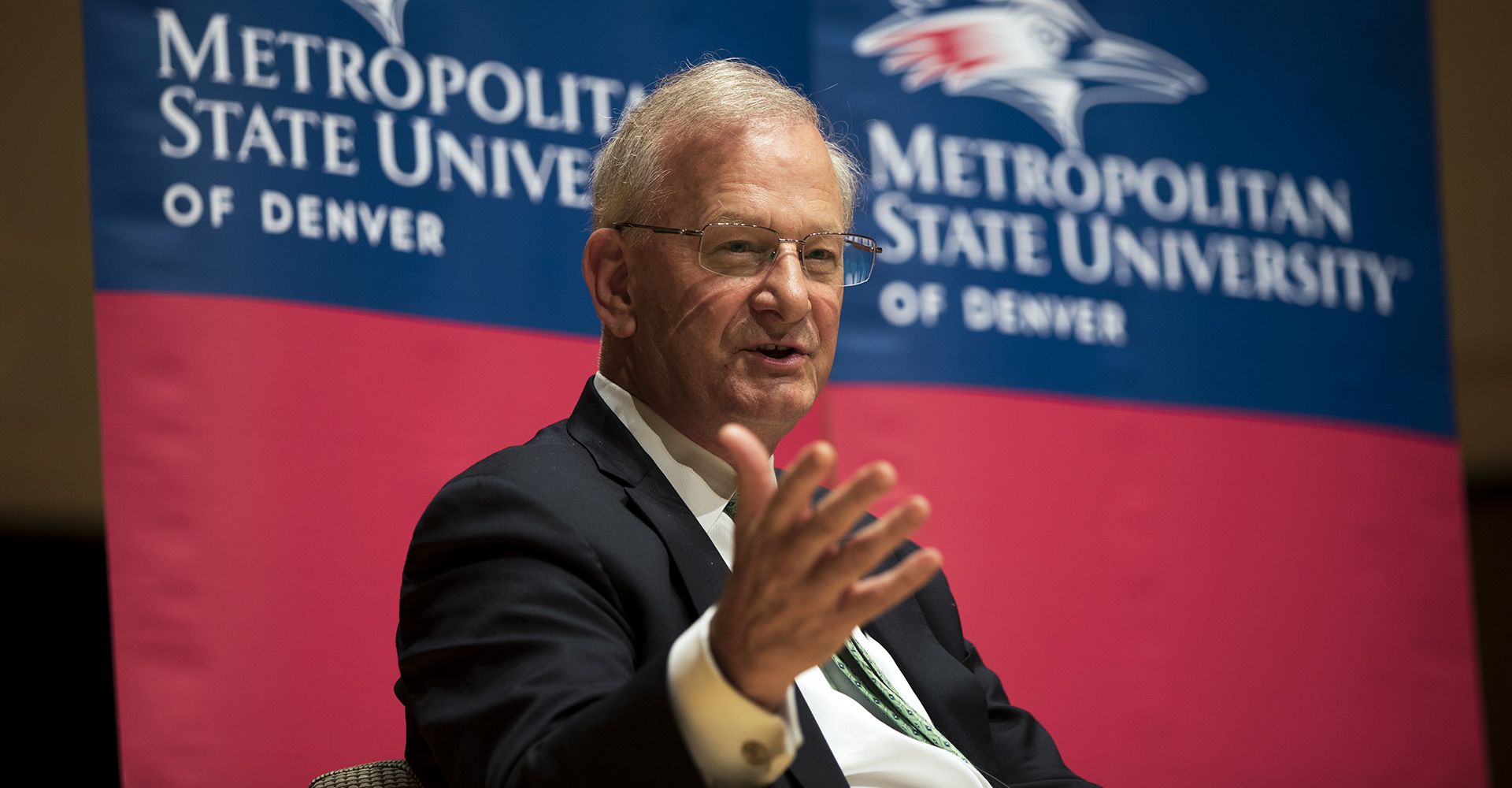
Thomas Hoenig, Ph.D., spent more than 40 years in economics and central banking. On June 20, the recently retired vice chairman of the Federal Deposit Insurance Corp. spent 90 minutes sharing lessons learned during his storied career and factors he sees influencing the economy in the near term.
In his opening remarks, the outspoken icon listed three primary influencers: demographics, investment and monetary policy. He cited the country’s slowing population growth as an infrequently discussed issue that could have profound impact on the nation’s economic future.
On the investment front, Hoenig echoed a familiar refrain from his time at the FDIC. He cautioned that the rapid rise of consolidation in banking and the perception that banks are “too big to fail” make the economic system more vulnerable. He noted that in 1985 there were 18,000 commercial banks. Today, there are 5,200. He predicted that number would likely be halved again in the coming years.
As monetary policy is concerned, Hoenig said the U.S. and the world are essentially establishing a new economic equilibrium in the decade since the financial crisis of 2008, which he characterized as a “zero-interest-rate environment.”
“We put some things in place to create a more accountable capital system, and we retained them,” said Hoenig, also a former president of the Federal Reserve Bank of Kansas City. “But now there is enormous pressure, with things being so good, to back off. We could be doomed to repeat the past. I hope not.”

Hoenig emphasized that dealing with these factors is complicated by changes to economic policy, such as recent tax cuts, and a rising deficit.
Given the variability of these factors and environment, he said, it is hard to predict the country’s economic growth. But he remains hopeful. “I’m an optimist but also a practical individual,” he said. “It will take a lot of thought and care if we are to remain the global leader we are today.”
The program, titled “The Economic System and Stability: Changing the Goal,” then shifted to a Q&A format, facilitated by Janine Davidson, Ph.D., president of host institution Metropolitan State University of Denver.
The wide-ranging conversation covered such topics as the history of the FDIC, leading during the bubble-burst of 2008 and the intrigue of cryptocurrency.
Hoenig called Bitcoin the “Pet Rock of currency,” saying it is valuable only because people think it is valuable, rather than being backed by a sovereign government.
He was adamant that economic policy needs to be kept “simple, understandable and enforceable” and said, “CEOs know when what they’re doing is right or wrong. They don’t need a 1,200-page document to tell them.”

Reflecting on the toughest decision of his policymaking career, Hoenig cited times when he voted against consensus. He said he was not appreciated for it but wouldn’t have been doing his duty had he voted against his conscience. He called those experiences gut-wrenching but expressed no regret.
“I would do it over,” he said, “especially looking in hindsight.”
Hoenig also had some pertinent advice for students considering careers in economics and banking. Perhaps not surprisingly, his message ran counter to the national narrative on the lack of practicality in higher education.
“If that is the career you choose, great,” he said. “But whatever you do, take electives that are not in your field. I can promise you, the people who make it further are the people who have the broadest scan of the world. If you don’t do that, your potential is limited.”
Hoenig’s forecast for the country’s economic future was not limited to monetary policy, either.
“The economic system is an engine with a lot of moving parts,” he said. “Monetary policy is one, but education is second. If you don’t build for the future in terms of quality of citizens, you have no future.”


